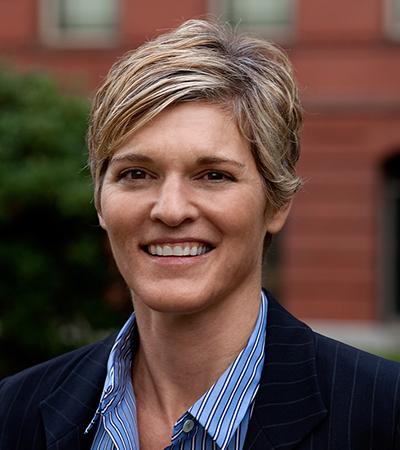
The 2017 Roscoe Pound Lecture
28 Feb 2017
The 2017 Pound Lecture is scheduled for Friday, March 10th from 12:10-1:10 p.m. Jody Freeman, Archibald Cox Professor of Law at Harvard Law School, will present “The Limits of Executive Power: The Obama-Trump Transition.”
Professor Freeman is a leading scholar of both administrative law and environmental law and has written extensively on federal agency regulation, climate change, energy and environmental policy, and executive authority. Professor Freeman’s book, Global Climate Change and U.S. Law (co-edited with Michael Gerrard) was published in 2015.
Professor Freeman served in the White House as Counselor for Energy and Climate Change in 2009-10, where she was the architect of the president’s historic agreement with the auto industry to double fuel efficiency standards, launching the administration’s greenhouse gas program under the Clean Air Act. In her role, she also contributed to a host of initiatives on renewable energy, energy efficiency, transmission policy and oil and gas drilling, as well as the administration’s effort to pass climate and energy legislation.
After leaving the administration, Freeman served as an independent consultant to the President’s bipartisan Commission on the BP Deepwater Horizon Oil Spill. She has been appointed to the Administrative Conference of the United States, the government think tank for improving the administrative and regulatory process, and elected the American College of Environmental Lawyers. In 2012, Professor Freeman was elected as an outside director of ConocoPhillips, where she serves on the public policy and compensation committees.
During her presentation, Freeman will discuss the executive power President Obama used to accomplish many of his domestic and international policy goals, especially, in the area of climate and energy policy. What is the risk that a Trump administration will significantly repeal the Obama legacy. What are the legal constraints on roll-back and retrenchment, and what, as a result, is the lesson about the limits of Executive Power?
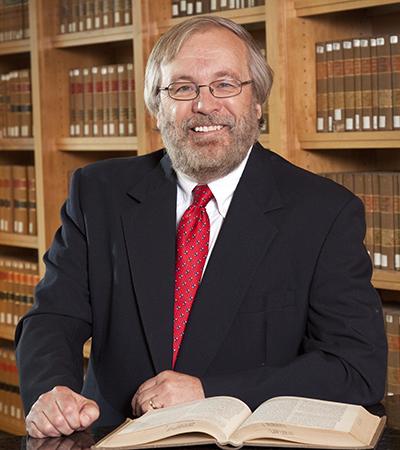
Duncan's Article Published in Regent University Law Review
24 Feb 2017
Professor Richard Duncan’s article Justice Scalia and the Rule of Law: Originalism vs. the Living Constitution was published in the Regent University Law Review.
The article’s abstract is below:
Justice Antonin Scalia's sudden death in February, 2016, was a great loss for his family, a great loss for his friends, and a great loss for the "Written Constitution" of the United States of America. We will have no more of his brilliant, witty, and pugnacious judicial opinions. Instead, we will have to settle for the body of work he left behind as his legacy. But, as one commentator has said, his opinions are "so consistent, so powerful, and so penetrating in their devotion to the rule of law"—the real rule of law, not the political decrees of judges creating the so-called "Living Constitution" "that one may take one or two almost at random and catch a glimpse of the great patterns of his jurisprudence, as well as flashes of his famous wit." Scalia was the greatest Supreme Court Justice of his generation, perhaps of all time. Professor Steven G. Calabresi, a former law clerk of Justice Scalia, recently said that "[Justice Scalia] is the most important justice in American history—greater than former Chief Justice John Marshall himself."' I will not dissent from Professor Calabresi's opinion. When Justice Scalia passed away, I lost the hero of my life in the law. But he lives on in his written words, a body of work that was designed to shape our understanding of the Constitution for generations yet to come. I love the pugnacious poetry of his opinions, particularly of his dissents. Margaret Talbot once referred to Justice Scalia's provocative style as "the jurisprudential equivalent of smashing a guitar onstage." And so it was. Justice Scalia was once asked why he took such pains to use memorable terms and provocative phrases in his Supreme Court opinions (particularly in his dissents), and he said that he wrote them this way for law students. If his dissents are provocative and memorable, they will appear in law school casebooks, and if they are in the casebooks, they will be read by law students who might well decide that his views about the original meaning of the Written Constitution are persuasive. This made him a Justice who wrote in the spirit of a teacher or professor of constitutional law, and in the long run, this pedagogical function will likely stand as his most significant achievement. Although some credibly believe that his greatest contributions to the law are in the area of statutory construction and the merits of textualism over legislative history, 12 for me, Justice Scalia's most important legacy is his work on originalism versus the Living Constitution and his persuasive conclusion that originalism is the "lesser evil." Together with former Attorney General Edwin Meese III and the late, great Judge Robert H. Bork, Justice Scalia was, in his own words, one of "a small hearty minority who believe in a philosophy called originalism" as an essential component of "a government of laws and not of men." To Justice Scalia, the text of the Written Constitution is law, and the duty of the Court is to interpret the constitutional text based upon its original meaning. The so-called Living Constitution is not law but rather clay in the hands of Justices who shape it to mean whatever they believe it "ought to mean." The purpose of this Article is to focus on the part of Justice Scalia's incredible legacy that concerns the so-called "Great Debate" in constitutional law between originalism and the Living Constitution. I will focus particularly on Justice Scalia's argument that the Living Constitution is the greater evil because it substitutes the rule of unelected judges for the rule of law. Importantly, Scalia's vision of original understanding originalism is not a vacuous call for total judicial disengagement. Rather, Scalia believed, quite simply, that the Written Constitution "says what it says and doesn't say what it doesn't say." When the Constitution speaks, it is the duty of the Court to practice judicial engagement and apply the Constitution's precepts to decide cases governed by its original meaning. When the Constitution is silent, however, it is the duty of the Court to practice judicial restraint and permit Congress and state legislatures to make laws within their respective powers.
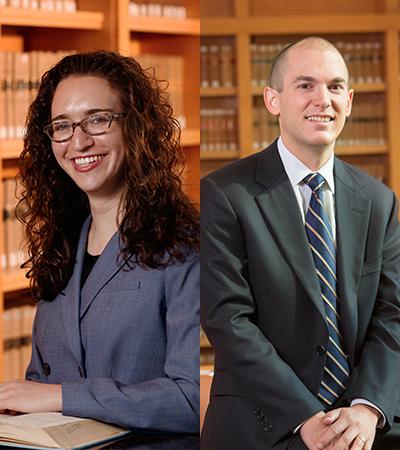
Thimmesch and Wittlin Named Professors of the Year
22 Feb 2017
At the Meeting of the Minds event, Professors Adam Thimmesch and Maggie Wittlin were named the 2017 Professors of the Year. Each year, the SBA hosts the event and administers nominations for the Professor of the Year Awards. The current 1L students nominated Professor Wittlin and upperclass students nominated Professor Thimmesch.
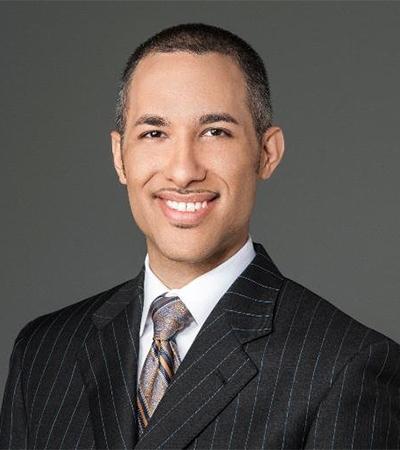
Dawes, '06, Receives Families USA Health Equity Advocate of the Year Award
21 Feb 2017
Families USA issued the following news release:
Families USA announced today that
"Daniel has been on the front lines of every important health care battle of our time, and he has been tireless in his fight to ensure that vulnerable and marginalized populations get the quality health care they deserve," said Ron Pollack, executive director of Families USA. "He's truly an inspiration for all of us who believe health care is a right, not a privilege."
The award will be presented Friday, Feb. 17, at an awards luncheon on the second day of Families USA's 22nd Annual Health Action Conference.
Besides his work at Morehouse, Dawes is a lecturer on health law and policy at the Satcher Health Leadership Institute. He is also the co-founder and Principal Investigator of the Health Equity Leadership and Exchange Network (HELEN), which is a national network of health equity champions in virtually every state and territory.
He was also an instrumental leader in shaping the Affordable Care Act in the U.S. Senate, where he founded and chaired the National Working Group on Health Disparities and Health Reform, which worked to ensure that the Affordable Care Act included measures to address the disparities in health care and health status among racial and ethnic minorities, people with disabilities, women, children, LGBTQ individuals, and other vulnerable groups in the United States. In 2016 he published "150 Years of Obamacare," which provides a behind-the-scenes look at how the decades-long health equity, mental health, and health reform movements coalesced to produce the Affordable Care Act.
Mr. Dawes also serves on several boards, commissions, and councils focused on health equity and health reform. He is also the author of several publications.
Mr. Dawes holds a JD from University of Nebraska-Lincoln.
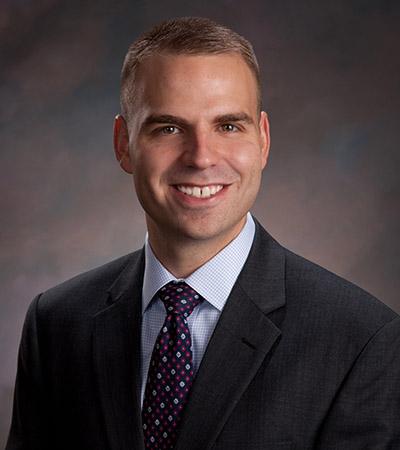
McIntosh, '14, Accepted into Nebraska Water Leaders Academy
10 Feb 2017
Ryan McIntosh of Nebraska City has been accepted into the Nebraska Water Leaders Academy, a one year program that provides leadership training and educates participants about the vital role of rivers, streams and aquifers play in the economic sustainability of the state.
McIntosh is an associate attorney with Mattson Ricketts Law Firm in Nebraska City. He earned a B. A. in political science (2010) and a J. D. (with distinction; 2014), both from the University of Nebraska-Lincoln.
A project of the Water Futures Partnership-Nebraska, Academy sessions feature classroom as well as field trip experiences presented by acknowledged experts in leadership and natural resource topics held at locations across the state.
The Water Leaders Academy is partially funded through a grant from the Nebraska Environmental Trust and more than 25 other organizations and individuals.
More information can be found at www.waterleadersacademy.org.
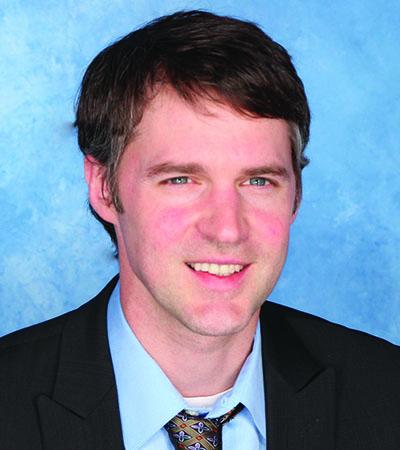
Kubat, '02, Accepted into Nebraska Water Leaders Academy
10 Feb 2017
Rick Kubat of Omaha has been accepted into the Nebraska Water Leaders Academy, a one-year program that provides leadership training and educates participants about the vital role of rivers, streams and aquifers play in the economic sustainability of the state.
Kubat, government relations attorney with the Metropolitan Utilities District of Omaha earned a B. A. in political science at Miami University (Oxford, Ohio-1998). He is a 2002 graduate of the University of Nebraska-Lincoln College of Law.
A project of the Water Futures Partnership-Nebraska, Academy sessions feature classroom as well as field trip experiences presented by acknowledged experts in leadership and natural resource topics held at locations across the state.
The Water Leaders Academy is partially funded through a grant from the Nebraska Environmental Trust and more than 25 other organizations and individuals.
More information can be found at www.waterleadersacademy.org.
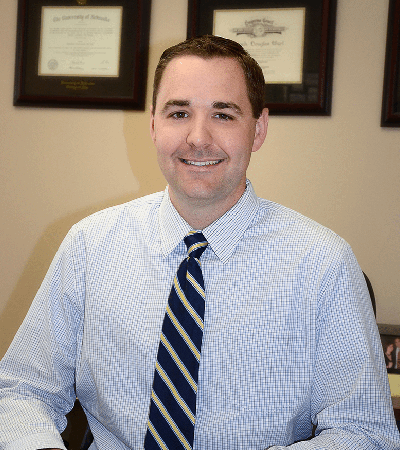
Wurl, '10, Named Partner at Norman, Paloucek, Herman, and Wurl
10 Feb 2017
Brock D. Wurl,’10, was named partner at Norman, Paloucek, Herman, and Wurl Law Offices in North Platte where he has worked since graduating from the College of Law. Brock’s primary areas of focus are personal injury, workers’ compensation, real estate litigation, adoption, and Social Security Disability Insurance.

Nebraska Law to host women’s leadership conference March 3
02 Feb 2017
The University of Nebraska College of Law will host the Women Leading in Law, Business and Philanthropy Conference on March 3.
The goal of the conference, which will be from 11:30 a.m. to 5:30 p.m., is to provide a space to learn about how women are and have been effectively leading in their respective communities. What have been the challenges of being women in those areas? What have been the advantages? These questions and many others will be the focus of sessions related to the women’s work in the judiciary, government, private business and philanthropic organizations.
"This conference is a tremendous opportunity to learn from women who have had remarkable success and from the varying experiences these women have had as leaders in their respective fields,” said Molly Brummond, assistant dean for student and alumni relations at Nebraska Law. “Our hope is that everyone who attends leaves with a greater understanding of how women are and have been effectively leading, of the challenges women face in different work environments, and of the skills, approaches and perspectives women bring to the table that benefit law firms, government agencies, and both nonprofit and for-profit businesses.”
The day will open with a keynote from Linda Bray Chanow, executive director of the Center for Women in Law at the University of Texas School of Law. Panels will focus on women in private practice, government, business, and the judiciary. A plenary session focuses on women leading in philanthropy and features panelists Susie Buffett, Dianne Lozier, Joan Squires and Lyn Wallin Ziegenbien.
The event is free for students and $50 for others. Lunch is included, thanks to a sponsorship from the Women in the Law Section of the Nebraska State Bar Association. More information and registration information can be found here.
Witten by: University Communications
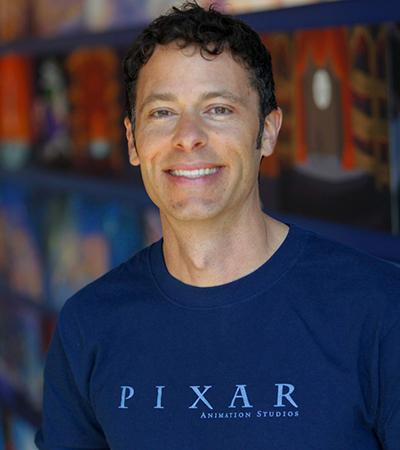
The Baylor Evnen Build Your Character Program on Communications
23 Jan 2017
The Baylor Evnen Build Your Character Program on Communications is scheduled for Wednesday, February 8th from 12:10-1:10 p.m. Matthew Luhn, writer, story consultant, and creative writing instructor, will present “Storytelling in Law & Business” at the College of Law.
Matthew Luhn is not a lawyer, but knows something about influencing through the art of storytelling. He is a writer, story consultant, creative writing instructor and keynote speaker with over 25 years' experience creating stories and characters at Pixar Animation Studios, The Simpsons, and beyond.
Alongside his story work at Pixar, Matthew also trains CEO’s, marketing teams, directors and other professionals how to craft and tell stories.
During his keynote, "Storytelling in Law & Busines," Matthew will train attendees how to develop stories and write to create compelling stories that move audiences to action.
Matthew's story credits include Toy Story (1995), Toy Story 2 (1999), Monsters Inc. (2001), Finding Nemo (2003), Cars (2006), Ratatouille (2007), UP (2009), Toy Story 3 (2010), Monsters University (2013), Toy Story of Terror (2013), Toy Story That Time Forgot (2014), and other films and TV shows currently in development.
Matthew's career began at 19 years old, as the youngest animator to work on The Simpson TV series. His TV credits on the The Simpsons include Kamp Krusty (1992), Lisa's Pony (1992), Homer Alone (1992), Colonel Homer (1992), Homer Defined (1992), and Burns Verkaufen der Kraftwerk (1992).
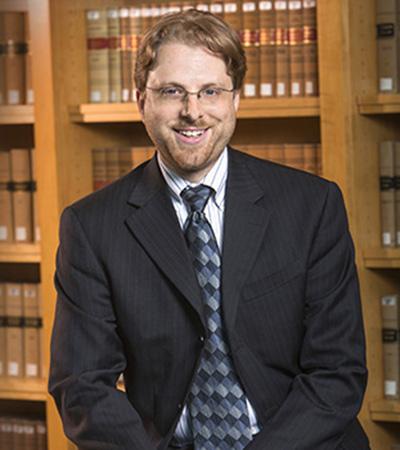
Hurwitz Named Co-Director of the Space, Cyber, and Telecommunications Law Program at the College of Law
17 Jan 2017
Professor Justin (Gus) Hurwitz has been named the co-director of Nebraska Law’s Space, Cyber, and Telecommunications Law Program, effective January 1, 2017. Hurwitz will work alongside the program’s current director, Professor Matthew Schaefer and the program’s executive director Elsbeth Magilton, to continue growing the telecommunications and cyber components of the program as it continues into its second decade.
While building on the foundation that is already in place, Hurwitz’s initiatives will focus largely on telecommunications and cyber law, including substantial focus on cybersecurity and interdisciplinary work at the intersection of law & policy.
“Gus has proven himself to be key in building the telecommunications and cyber aspects of our curriculum,” Interim Dean Richard Moberly said. “His willingness to champion initiatives aimed at growing this program will help move the College forward in these important fields.”
Hurwitz joined the College of Law faculty in 2013 as an assistant professor of law. His work builds on his background in law, technology, and economics to consider the interface between law and technology and the role of regulation in high-tech industries. In 2015 the National Law Journal named Hurwitz a Cyber Security & Data Privacy Trailblazer.
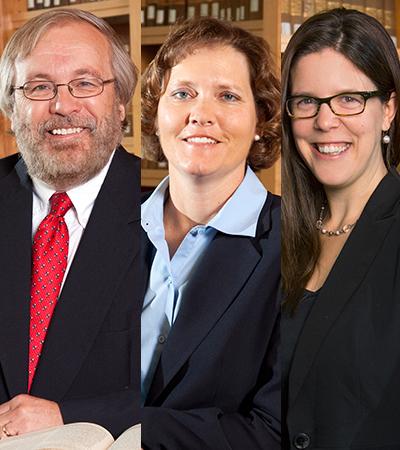
Nebraska Law Professors Participate in Association of American Law Schools Annual Meeting
11 Jan 2017
Professor Rick Duncan served as the official delegate of the University of Nebraska College of Law to the AALS House of Representatives. In addition to his responsibilities as a College delegate, Professor Duncan moderated a panel of scholarly works in progress on Friday, January 6, 2017.
Professor Colleen Medill was one of three nationally recognized teachers who spoke at a program sponsored by West Academic to showcase how faculty can incorporate professional skills training in large first year Property courses. The program, entitled Reinforcing Student Understanding of Substantive Property Law through Skills Exercises, also featured Professor Tanya Marsh of Wake Forest University and John Sprankling of McGeorge University. Professor Medill’s presentation demonstrated how she incorporates transactional drafting and negotiation exercises into her Property course using her book, Developing Professional Skills: Property.
Professor Jessica Shoemaker was an invited speaker at the Agricultural & Food Law Section program at the AALS annual meeting. Professor Shoemaker’s talk, “Food, Agriculture, and the Future of American Indian Land Tenure,” previews her current work on transformational property system reforms.
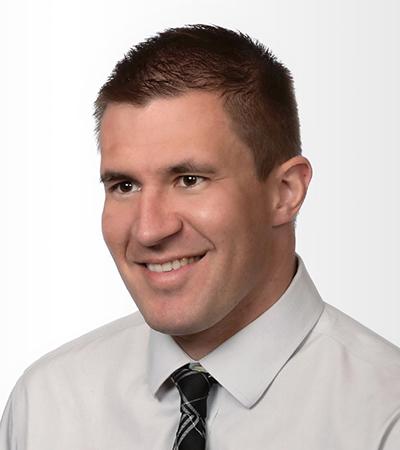
Gardner, '08, Named Principal at Jackson Lewis P.C.
10 Jan 2017
Jackson Lewis P.C. is pleased to announce Ross Gardner, '08, has been elevated to Principal of the firm’s Omaha office. Mr. Gardner represents management in all aspects of traditional labor law and employment litigation. He also has extensive experience in other areas of traditional labor law as well, including collective bargaining negotiations, desktop advice and Section 301 lawsuits.
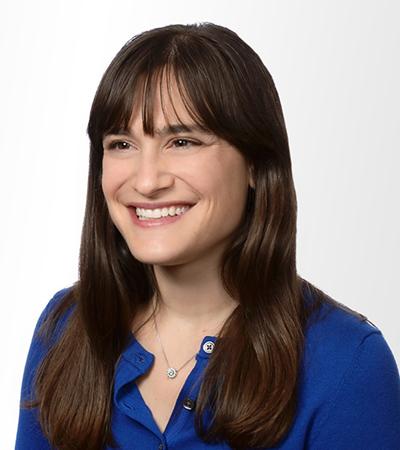
Feinstein, '06, Named Principal at Jackson Lewis P.C.
10 Jan 2017
Jackson Lewis P.C. is pleased to announce attorney Jessica Feinstein, '06, has been elevated to Principal of the firm's Omaha office. Ms. Feinstein specializes in representing U.S. and
multi-national companies in employment based immigration.
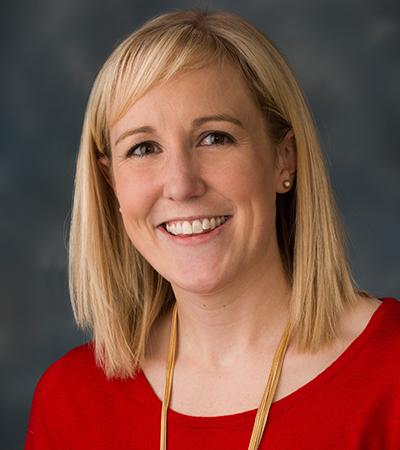
Hassebrook, '11, Named Executive Director of AFAN and WSA
10 Jan 2017
The Alliance for the Future of Agriculture in Nebraska (AFAN) and We Support Ag (WSA) are excited to announce the hiring of Kristen Hassebrook as Executive Director. Hassebrook, has been selected to lead the combined coalition of AFAN and WSA, beginning February 1.
As AFAN and WSA look to restructure and collaborate more deeply, Hassebrook will be a great addition to provide strategic vision, administrative insight and development as we look to continue to grow livestock in Nebraska. “We look forward to working with Hassebrook on the development and growth of these organizations,” Lori Luebbe, AFAN President stated, “Her background and experience lends itself well towards our mission and the livestock industry.”
The announcement of Hassebrook as Executive Director also coincides with a focus on greater collaboration between AFAN and WSA to benefit livestock growth in which her talents and experiences in the policy and political arenas will help to shape a pro-agriculture and pro-livestock growth agenda. Pete McClymont, President of WSA said “We’re thrilled to have Kristen share her leadership and expertise with AFAN and WSA. Kristen has wide spread respect from those that have worked with her throughout her professional career.”
Hassebrook comes to this position from the University of Nebraska Foundation, where she was the Director of Development for the Institute of Agriculture and Natural Resource. Prior to that she served as Vice President of Legal and Regulatory Affairs for Nebraska Cattlemen. Hassebrook is a native Nebraskan and grew up on a diversified farm and feedlot. She is a graduate of the University of Nebraska-Lincoln and the Nebraska College of Law.
As Willow Holoubek finishes her final days as the AFAN executive director, she conveys confidence in the decision of hiring Hassebrook. “I am so excited about Hassebrook joining the AFAN team and what it means for the future of this organization,” said Holoubek. “With her background in law and her passion for agriculture, I believe that she will be an excellent fit to grow WSA and AFAN.”
Story by: Alliance for the Future of Agriculture in Nebraska
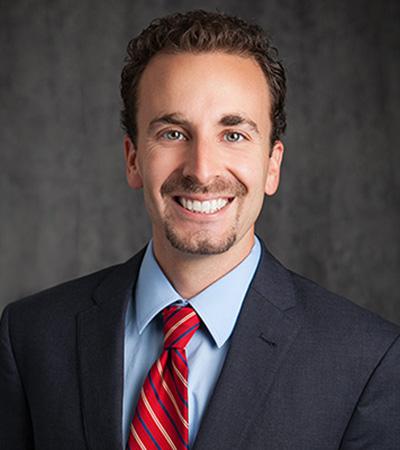
Glaser, '11, Named Partner at Peters Law Firm
09 Jan 2017
Jordan T. Glaser, ’11, was named a partner at the Peters Law Firm in Council Bluffs, Iowa where has worked since graduating from the College of Law. Jordan devotes his practice entirely to litigation, specifically in the areas of personal injury, workers' compensation, criminal defense, and dissolution of marriage.
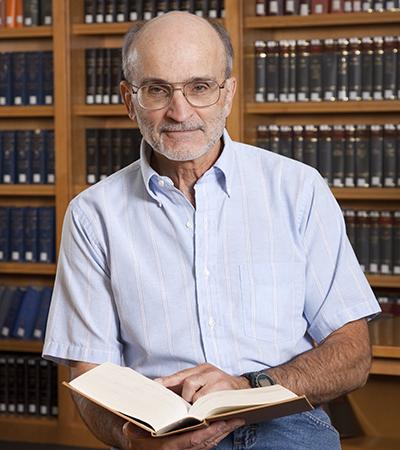
Schopp’s Article Published in QUT Law Review
21 Dec 2016
Professor Robert Schopp’s article Therapeutic Jurisprudence, Coercive Interventions, and Human Dignity was published in the QUT Law Review Special Issue on Current Issues in Therapeutic Jurisprudence.
Therapeutic Jurisprudence pursues the reform of legal rules, procedures, and roles in order to promote the well-being of those affected without violating other important values embodied in law. This paper requires analysis of those relevant values and of the significance of those values for the most justified approach to defining and pursuing individual and public well-being. The analysis presented here provides a preliminary example of such an analysis that addresses human dignity as one value relevant to the most justified application of police power and parens patriae interventions to individuals with mental illness.
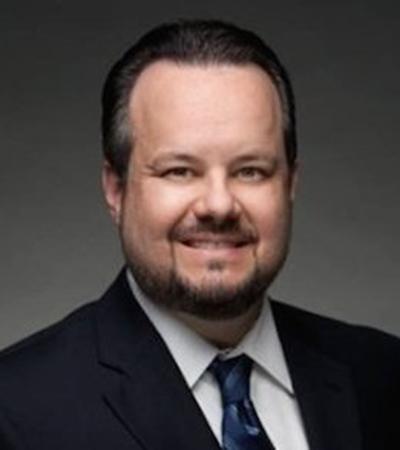
Torrens, '96, Joins Righi Fitch Law Group
20 Dec 2016
Dan Torrens, '96, has joined Righi Fitch Law Group in Phoenix, AZ. Mr. Torrens, who is of counsel to the firm, is a civil litigator who practices in the area of personal injury, commercial litigation, and ADR. He remains a member of the American Board of Trial Advocates.
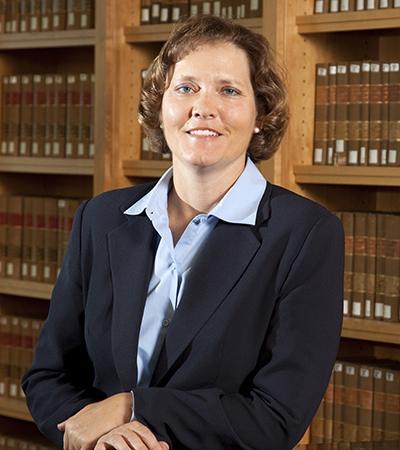
Medill appointed to federal employee welfare, benefit council
13 Dec 2016
Nebraska Law Professor Colleen Medill has been appointed to a three-year term to the Advisory Council on Employee Welfare and Pension Benefit Plans, known as the ERISA Advisory Council, by U.S. Secretary of Labor Thomas E. Perez.
Perez announced the newest members, who represent the interests of labor, management and the public, on Dec. 12. He said the members joining the council “are uniquely qualified to help it accomplish its goals. Their expertise will be a valuable complement to the department’s mission to protect workers’ benefits.”
Medill, who joined the University of Nebraska College of Law in 2004, is a nationally recognized expert in the area. She is an elected fellow at the American College of Employee Benefits Counsel and an elected member of the American Law Institute. Her ERISA textbook, “Introduction to Employee Benefits Law: Policy And Practice,” is used in more than 40 law schools.
She regularly speaks at national conferences on the responsibilities of employers and the rights of employees under the Employee Retirement Income Security Act of 1974 and the Affordable Care Act, and previously testified as an invited expert witness before the ERISA Advisory Council in 2014 on trends in fiduciary plan administration and the outsourcing of ERISA fiduciary duties.
The 15-member council provides advice on policies and regulations affecting employee benefit plans governed by the Employee Retirement Income Security Act of 1974. Members serve staggered three-year terms. Three members are representatives of employee organizations (at least one of whom represents an organization whose members are participants in a multi-employer plan). Three members are representatives of employers (at least one of whom represents employers maintaining or contributing to multi-employer plans). Three members are representatives of the general public. There is one representative each from the fields of insurance, corporate trust, actuarial counseling, investment counseling, investment management and accounting.
Medill was appointed to represent the interests of the general public.
“Everyone expects that the Trump administration will bring change to Washington, and that change is likely to impact, directly or indirectly, the regulation of retirement and health care plans sponsored by employers for their workers,” Medill said. “My role is to bring an objective, balanced perspective to the regulatory policy issues that the council studies and to make sure that the public has a voice in the process.”
The group will next convene in March in Washington, D.C.
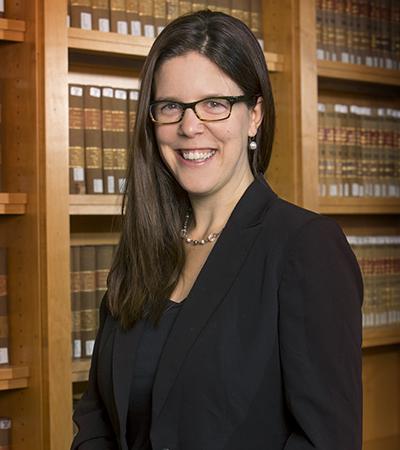
Shoemaker Joins Great Plains Research Inaugural Editorial Board
06 Dec 2016
In the most recent edition of Great Plains Research, Professor Jessica Shoemaker was announced as one of ten scholars invited to serve a three-year term on the journal’s inaugural editorial board. Great Plains Research is a peer-reviewed journal that began 25 years ago. Under the direction of new Editor-in-Chief Peter Longo, ’82, the journal will continue to publish “excellent research on a range of topics relevant to the Great Plains region,” while striving to be more engaging and supportive of work that defies disciplinary classification.
Additional information about the future of Great Plains Research is available here: http://muse.jhu.edu/article/638700.
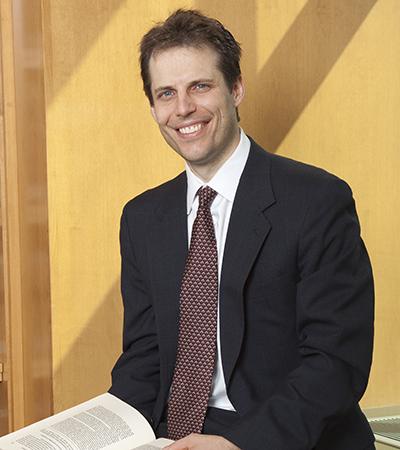
Berger Reacts to Death Penalty Referendum Results
05 Dec 2016
Following the results of the death penalty referendum on November 8th, Professor Eric Berger spoke to media outlets regarding the future of the death penalty protocol in Nebraska.
Media coverage is available below.